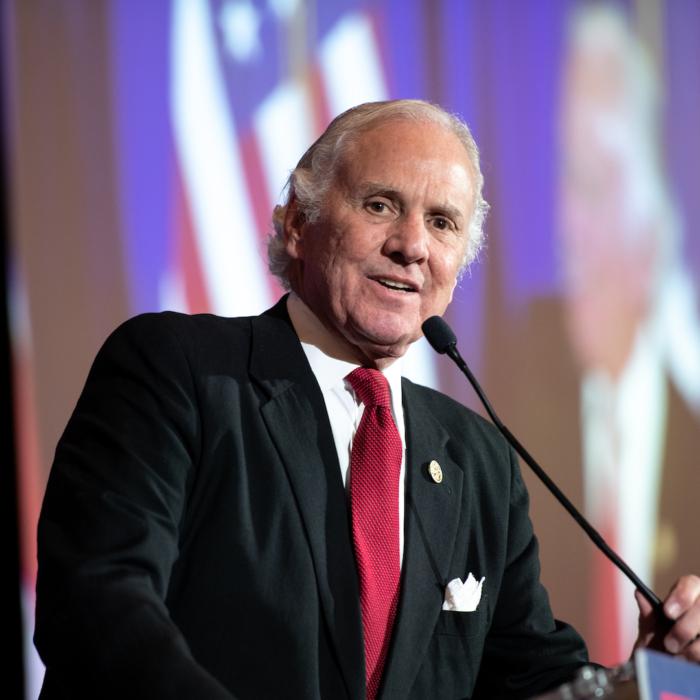State’s Attempt to Reduce Medicaid Funding for Planned Parenthood Reaches Supreme Court
The U.S. Supreme Court may have changed its approach to the national abortion policy, yet the justices are set to play a pivotal role in the forthcoming developments.
On April 2, the court will deliberate on a case that, while not directly impacting abortion legislation, could greatly influence the largest abortion provider in the nation.
Central to this case is whether federal law clearly grants Medicaid patients the right to select their preferred provider. Planned Parenthood and the Fourth Circuit Court of Appeals believe that it does.
Conversely, the state of South Carolina contends that the law gives states the authority to determine which providers qualify for Medicaid funding, especially considering its prohibition on taxpayer funding for abortion services. South Carolina has requested the Supreme Court’s intervention.
The Case
The legal action arose from South Carolina Governor Henry McMaster’s directive in 2018, which mandated the state’s health department to eliminate all abortion providers from the Medicaid program, labeling all abortion clinics as “unqualified” to deliver family planning services.
In reaction, Planned Parenthood South Atlantic and one of the organization’s Medicaid patients promptly filed a federal lawsuit against this order.
At stake is a provision from the Social Security Amendments of 1965, known as the Medicare and Medicaid Act, which stipulates that state Medicaid plans must “allow any individual eligible for medical assistance … to obtain such assistance from any [provider] qualified to offer the required service or services … who agrees to provide such services.”
Planned Parenthood argues that this wording guarantees Medicaid beneficiaries the right to receive care from any qualified and willing provider they select.
Both the district and appellate courts concurred, concluding that the law “unambiguously [creates] a right that is privately enforceable” under civil rights legislation.

A Planned Parenthood Reproductive Health Services Center in St. Louis on May 28, 2019. The upcoming Supreme Court case might pose a critical risk to Planned Parenthood, given its heavy dependency on government funding. Michael B. Thomas/Getty Images
John Bursch, senior counsel for Alliance Defending Freedom and representing South Carolina in this case, asserted to The Epoch Times that the law does not specify what qualifies a provider, thereby allowing states to make that determination. He suggested that this point undermines the assertion that patients possess the right to choose any provider they like.
“If you consider our free speech rights in the First Amendment, it would be akin to granting Congress the authority to define what constitutes speech. We don’t establish rights that way,” he elaborated.
Bursch maintained that Planned Parenthood failed to adhere to the necessary legal procedures for appealing its Medicaid disenrollment.

John Bursch, a senior counsel at Alliance Defending Freedom, will represent South Carolina during the Supreme Court hearings on April 2, 2025. Courtesy of Alliance Defending Freedom
He pointed out that the South Carolina Department of Health and Human Services has an administrative appeals process for Medicaid determinations that providers must agree to during enrollment.
“[Planned Parenthood] could have pursued an administrative appeal, and if that was unsuccessful, escalated the matter through the state court system, and eventually to the U.S. Supreme Court. Instead, they opted to recruit a client to file a federal lawsuit alongside Planned Parenthood as a co-plaintiff,” Bursch stated.
During the Supreme Court proceedings, Planned Parenthood will likely reference the case Health and Hospital Corporation of Marion County v. Talevski, resolved by the court in 2023.
“In that instance, they had a statute containing a nursing home residents’ bill of rights, featuring the word ‘right’ prominently,” he elaborated.
Bursch emphasized that the law in question also contained a provision allowing patients to choose their doctor, explicitly stating the “resident’s right to choose a doctor.”
“This is entirely different,” he insisted, arguing that the Medicaid Act “lacks any rights-creating language.”
“All it mandates is that states include this ‘any qualified provider’ provision in their plans,” Bursch concluded.

A file photo of the Supreme Court in Washington. The legal action arose from South Carolina Governor Henry McMaster’s directive in 2018, which mandated the state’s health department to cut off all abortion providers from the Medicaid program. Reuters/Al Drago/File Photo
The Numbers
South Carolina law strictly prohibits taxpayer dollars from being allocated for abortion services, which the state has limited to the first six weeks of pregnancy, except under certain circumstances.
Although the Hyde Amendment restricts federal funding for abortion, Planned Parenthood still secures billions in taxpayer money annually for other services, such as contraception, pregnancy and STD testing, and cancer screenings.
According to Planned Parenthood’s latest annual report, nearly $700 billion, which accounts for 34 percent of its total revenue, came from taxpayers in 2023. The organization also states that over three-quarters (76 percent) of its clinics are located in rural or low-income areas, and nearly half (49 percent) of all patient visits are financed by Medicaid or the Title X family planning program.
“Every person should have access to quality, affordable health care from a provider they trust, regardless of their financial or insurance situation,” asserted Jenny Black, then-President and CEO of Planned Parenthood South Atlantic, following the Supreme Court’s acceptance of the case in December 2024.
“This case exemplifies politics at its worst: anti-abortion legislators exploiting their power to target Planned Parenthood and hinder those utilizing Medicaid as their primary insurance from accessing vital health services such as cancer screenings and birth control,” noted a spokesperson.
Conversely, Governor McMaster contended that the funds allocated for these services indirectly support abortion by alleviating Planned Parenthood’s financial burdens.
“South Carolina firmly asserts the value of the right to life. Consequently, taxpayers should not be compelled to finance abortion providers that contradict their beliefs,” the governor stated on February 10.
“I am confident in our authority to withdraw funding from Planned Parenthood, just as I was in 2018, and I trust that the U.S. Supreme Court will concur.”

Advocates for abortion rights and lawmakers hold a news conference prior to a debate on a bill that would limit abortions to just six weeks at the South Carolina State House in Columbia, S.C., on May 16, 2023. In South Carolina, taxpayer dollars are explicitly prohibited from funding abortions. Logan Cyrus/AFP via Getty Images
The Stakes
For Planned Parenthood, a ruling against them could prove detrimental due to the organization’s significant reliance on public funding.
While this wouldn’t be the first instance of a state successfully defunding Planned Parenthood—Arkansas, Mississippi, and Texas have already undertaken such measures—the ruling could encourage more states to follow suit.

Stacey Lee, a law and ethics professor at Johns Hopkins University’s Carey Business School and Bloomberg School of Public Health, shared insights about the potential implications of the case.
The implications of this case could extend far beyond just limiting funding for the prominent abortion provider, according to Stacey Lee, a university law and ethics professor.
“This case reaches much further than abortion itself,” Lee commented for The Epoch Times. “It raises questions about whether a low-income woman can continue seeing her established doctor for yearly screenings, cancer checks, or contraception—merely because that provider also offers legal abortions paid from separate non-Medicaid funds. If the court sides with South Carolina, the resulting fragmented care would disproportionately impact vulnerable populations with limited healthcare resources.”
She further argued that this case could encourage states to withdraw funding from other health care providers driven by political reasons, rather than by care quality or professional qualifications.
On the other hand, Bursch contended that a ruling favoring Planned Parenthood could harm women and children.
“The services available at a Planned Parenthood clinic, if offered at all, often lack quality,” he stated, referencing various reports outlining deteriorating conditions and care at different Planned Parenthood locations.

A woman waits to receive an abortion at a Planned Parenthood clinic in West Palm Beach, Fla., on July 14, 2022. Chandan Khanna/AFP via Getty Images
Bursch expressed his hope that federal lawmakers will consider these factors when contemplating a potential defunding of Planned Parenthood on a national level.
Recently, a renewed push to eliminate all federal funding for the organization has gained traction. A favorable ruling from the Supreme Court could contribute to this momentum.
Conversely, a ruling against Planned Parenthood could be detrimental for the pro-life movement, potentially leading to reversals in decisions made by other states, thereby discouraging some lawmakers from seeking changes to the established norms nationwide.
At the Alliance Defending Freedom, a pro-life organization, Bursch expressed enthusiasm for opportunities to “promote the value of protecting unborn life.”
“Yet, this case goes beyond simply protecting babies; it’s also about safeguarding women,” he added.






